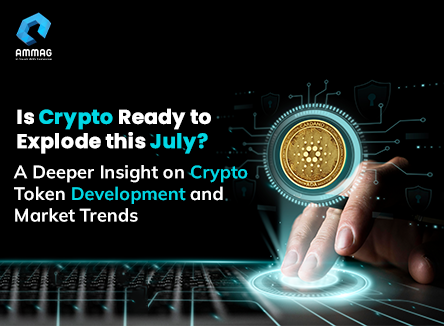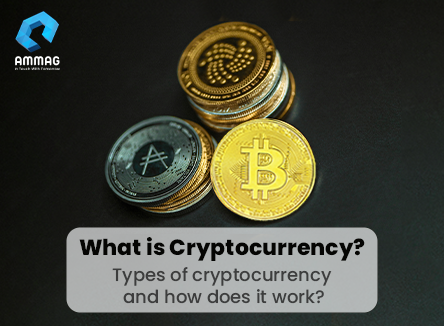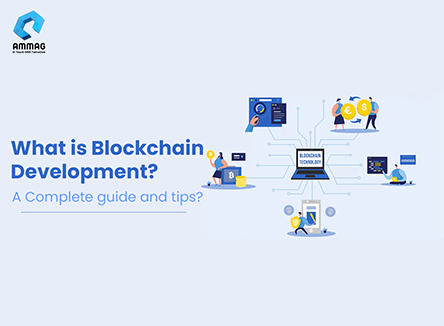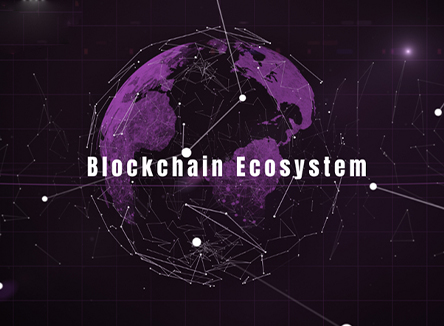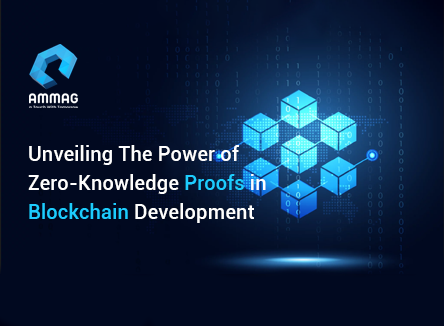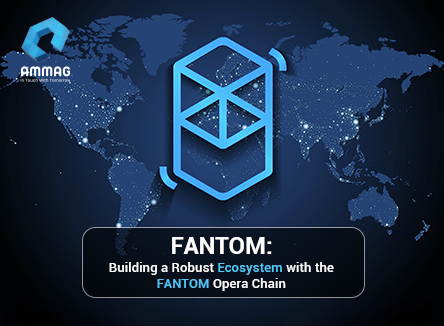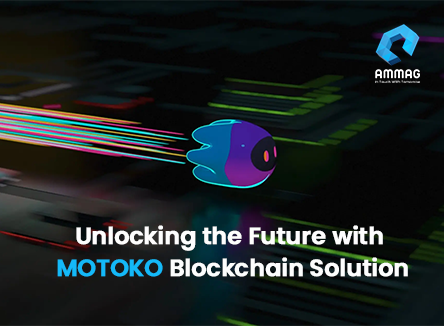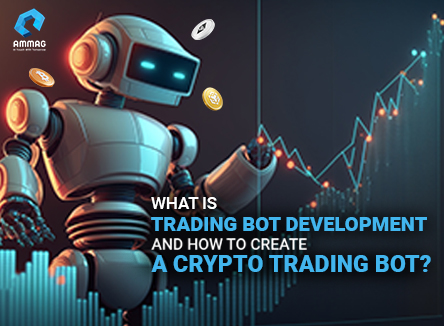What Is Decentralized Finance (DeFi) and How Does It Work
-and-How-Does-It-Work/Main-Image.jpg)
Embracing DeFi's Transformation
Decentralized Finance, or DeFi, isn't just a financial evolution; it's a revolution that's reshaping the very foundations of our traditional financial systems. At its core, DeFi represents a seismic shift in how we access and engage with financial services. So there are many top rated defi development service provider who can develop app for financial services. To truly appreciate the profound impact of DeFi, we must delve into the foundational principles that fuel this transformative force.
Liberation through Decentralization:
DeFi's bedrock is decentralization,
a force that dismantles the gatekeepers of conventional finance.
In the legacy financial world, banks and intermediaries hold the keys, dictating who gains entry.
DeFi, on the other hand, liberates us from this confinement by harnessing the power of blockchain
technology. It operates on a trustless, peer-to-peer network where users transact directly,
reclaiming absolute control over their financial destinies.
Illuminating Transparency:
Transparency is a guiding light within DeFi.
Every transaction conducted in DeFi applications is etched onto a public blockchain, a
ledger opens for all to scrutinize. This transparency not only fortifies security but fosters
unwavering trust among participants. Every action and smart contract stand open to inspection,
eradicating the shadowy realms of fraud and manipulation.
-and-How-Does-It-Work/Image_02.jpg)
Fortifying Security:
Security stands as an unyielding sentinel in
DeFi's domain. Smart contracts, the lifeblood of DeFi, are self-executing code residing on
the blockchain. They ensure transactions transpire only when preset conditions are met.
These contracts are invulnerable and unchangeable, shattering the specter of human error or
malevolence. Although DeFi has faced security trials, the community tirelessly works to augment protocol
and application resilience.
The Gateway of Accessibility:
DeFi pioneers financial democracy. It rips down
the age-old barriers that have long hindered financial access, be it geographical boundaries
or the need for a traditional bank account. Anyone armed with an internet connection can now
engage in DeFi, heralding a new era of financial opportunity for the unbanked and
underbanked around the globe. Inclusion is the rocket fuel propelling DeFi's meteoric rise.
The Symphony of Programmability:
Perhaps the most thrilling facet of DeFi is its programmability.Smart contracts empower developers to craft intricate financial instruments and applications.These decentralized applications,or dApps,choreograph a ballet of automation across lending,borrowing,trading,and asset management.DeFi unlocks the gateway to innovative,tailor-made financial solutions,ushering in a symphony of endless possibilities.
How DeFi Technology Works
To truly grasp the mechanics of DeFi, it's essential to understand how its core components work in harmony to create a decentralized financial ecosystem. DeFi operates on a blockchain-based infrastructure, primarily the Ethereum blockchain, although other blockchains are also gaining prominence in this space.
The Pillars of Decentralized Applications (dApps):
Decentralized applications, or dApps,
stand as
the cornerstone of DeFi. These digital marvels are software applications that dance to a blockchain's
rhythm,
free from the puppet strings of central authority. They choreograph a breathtaking array of financial
functions,
from lending and borrowing to trading and asset management. Users step into these dApps through
user-friendly interfaces, akin to the familiar platforms of traditional finance.
-and-How-Does-It-Work/Image_03.jpg)
The Concert of Cryptocurrencies:
Cryptocurrencies occupy center stage in DeFi's grand performance. They serve as the native digital currencies fueling DeFi's applications. While Ethereum's Ether (ETH) claims the spotlight, DeFi development projects often craft their own tokens, each with a unique role. These digital notes hum with life, facilitating transactions, securing loans as collateral, and rewarding liquidity providers and network validators with a melodious harmony.
DeFi Smart Contract Development: The Maestros of Automation:
Smart contracts, the maestros of automation, direct the composition of DeFi. These self-executing contracts house agreements within their code, leaving no room for misinterpretation. In DeFi smart contract development orchestrate financial processes and usher in trust and security sans intermediaries. Picture a lending platform where smart contracts compose the score, automatically executing loans and orchestrating collateral liquidations when predetermined conditions harmonize – a masterpiece of financial precision.
Liquidity Pools and Decentralized Exchanges (DEXs): The Trading Stage
The trading stage in DeFi's theater often boasts liquidity pools and decentralized exchanges (DEXs). Here, liquidity providers take center stage, locking their cryptocurrency assets into these pools to the applause of rewards and fees. DEXs, the virtuosos of DeFi, enable users to trade cryptocurrencies directly, captivating the audience with liquidity and facilitating price discovery, all without the mediation of centralized gatekeepers.
Yield Farming and Staking: Cultivating Rewards:
Yield farming and staking, DeFi's star soloists, cultivate rewards for participants in the network. Yield farmers offer their liquidity to DeFi platforms, savoring rewards in the form of tokens and fees, an ensemble encore for their participation. Stakers, the guardians of security and governance, lock their tokens in support, reaping their own ensemble in the form of rewards.
Interoperability and Cross-Chain Ballads:
As DeFi's epic tale unfolds, interoperability between diverse blockchain networks weaves a harmonious ballad. A cadre of projects takes the stage, working tirelessly on cross-chain solutions. These solutions harmonize asset transfers and interactions between varied blockchain platforms, extending DeFi's capabilities and reach, a concerto of boundless potential.
-and-How-Does-It-Work/Image_04.jpg)
The Role of DeFi Development Companies
DeFi development companies are at the forefront of technological advancement in the decentralized finance space. They play a pivotal role in several key areas:
1. Smart Contract Development:
DeFi development companies are responsible for creating secure and efficient smart contracts that underpin DeFi protocols. These contracts define the rules and processes for various financial activities, ensuring transparency and trust within the system.
2. Protocol Development:
DeFi protocols are the blueprints for financial applications, governing how assets are traded, lent, borrowed, and managed. Development companies design, deploy, and maintain these protocols, continually optimizing them for better performance and security.
3. Security Audits:
Security is paramount in DeFi, often conduct thorough security audits to identify and rectify vulnerabilities in smart contracts and protocols. These audits help protect users' assets and data.
4. Innovation:
DeFi is a fast-evolving space, and Defi development companies drive innovation by creating novel financial products and services. They constantly seek ways to improve DeFi's efficiency, accessibility, and user experience.DeFi Smart Contract Development
DeFi smart contract development is the backbone of decentralized finance, enabling the creation of automated and trustless financial applications. These self-executing contracts are integral to the DeFi ecosystem, ensuring that transactions are executed securely and transparently.
The Leading DeFi development company:
AMMAG Technologies is a prime example of a 360 degree blockchain development services provider that excels in the smart contract and defi development arena. Their commitment to creating secure and efficient smart contracts has been pivotal in enhancing the reliability and transparency of DeFi platforms.
The Significance of Smart Contracts in DeFi
Smart contracts are digital agreements written in code that automatically execute predefined actions when certain conditions are met. In DeFi, they serve several crucial roles:
1. Trustless Transactions:
DeFi smart contracts automate various financial processes, including lending, borrowing, trading, and yield farming. This automation enhances efficiency and reduces the potential for human error.
2. Automated Processes:
DeFi protocols are the blueprints for financial applications, governing how assets are traded, lent, borrowed, and managed. Development companies design, deploy, and maintain these protocols, continually optimizing them for better performance and security.
3. Security and Transparency:
Smart contracts are immutable once deployed on the blockchain, reducing the risk of fraud or tampering. All contract interactions and their outcomes are recorded on the public ledger, ensuring transparency.-and-How-Does-It-Work/Image_05.jpg)
Examples of DeFi Smart Contract Development Use Cases
1. Lending and Borrowing:
DeFi lending platforms, like Compound and Aave, use smart contracts to enable users to lend their cryptocurrency assets in exchange for interest or borrow assets by providing collateral. Smart contracts automatically manage interest rates and collateral liquidation.
2. Decentralized Exchanges (DEXs):
DEXs, such as Uniswap and SushiSwap, rely on smart contracts to facilitate peer-to-peer trading of cryptocurrencies. These contracts determine the price of assets based on supply and demand, eliminating the need for centralized order matching.
3. Automated Market Makers (AMMs):
AMMs like Balancer and Curve use smart contracts to provide liquidity pools for various cryptocurrencies. These contracts automatically balance asset ratios and distribute trading fees to liquidity providers.
4. Yield Farming:
Yield farming platforms use smart contracts to distribute rewards to users who provide liquidity to DeFi protocols. Smart contracts automate the calculation and distribution of rewards based on users' participation.
5. Options and Derivatives:
Some DeFi platforms offer options and derivatives trading using smart contracts. These contracts automate complex financial agreements, enhancing accessibility to derivative markets.
6. Decentralized Finance Development Oracles:
Oracles, such as Chainlink, use smart contracts to fetch real-world data and feed it into the blockchain, allowing DeFi applications to make decisions based on external information.DeFi Application’s Use Cases
Decentralized Finance (DeFi) offers a wide array of use cases that are disrupting traditional financial systems. These innovative applications provide users with greater control, transparency, and accessibility to financial services. In this step, we'll explore some of the most prominent DeFi use cases that are changing the financial landscape.
Decentralized Lending and Borrowing:
DeFi lending platforms, such as Compound, Aave, and MakerDAO, allow users to lend their cryptocurrency assets and earn interest or borrow assets by providing collateral. Smart contracts manage interest rates and collateral liquidation, making lending and borrowing more efficient and accessible to a global audience.
Decentralized Exchanges (DEXs)
DEXs, including Uniswap, SushiSwap, and Curve, enable users to trade cryptocurrencies directly with one another. These platforms eliminate the need for intermediaries and centralized order books, providing a more open and permissionless trading experience.
Liquidity Provision and Yield Farming
Yield farming platforms like Yearn Finance and Balancer allow users to provide liquidity to DeFi protocols and earn rewards.Liquidity providers help maintain liquidity in decentralized exchanges and lending platforms, earning fees and tokens in return.
Stablecoins and Algorithmic Stablecoins
Stablecoins, such as DAI and USDC, provide stability in the volatile crypto market. Some DeFi platforms use algorithmic mechanisms to maintain the stability of their native stablecoins, creating innovative financial stability solutions.
-and-How-Does-It-Work/Image_06.jpg)
Decentralized Asset Management
DeFi platforms like Set Protocol and Index Cooperative enable users to create and manage tokenized asset portfolios, providing exposure to various cryptocurrencies. These platforms offer decentralized asset management solutions, reducing reliance on traditional fund managers.
Synthetic Assets and Derivatives
Some DeFi projects, like Synthetix, offer synthetic assets and derivatives trading. These platforms allow users to gain exposure to traditional assets like stocks and commodities through blockchain-based tokens.
Decentralized Insurance
DeFi insurance platforms, such as Nexus Mutual and Cover Protocol, provide users with decentralized insurance coverage. Users can protect their assets and contracts against various risks, enhancing security within the DeFi ecosystem.
Decentralized Governance
DeFi platforms often feature decentralized governance systems, allowing token holders to participate in decision-making processes. Users can propose and vote on protocol upgrades, changes, and adjustments, making the ecosystem more community-driven.
Risks and Challenges DeFi Applications
While Decentralized Finance (DeFi) brings numerous advantages, it's essential to acknowledge and address the potential risks and challenges associated with this innovative ecosystem. Understanding these concerns is crucial for both developers and users to navigate the DeFi space safely.
Smart Contract Vulnerabilities
Smart contracts, although secure when properly audited, can still be vulnerable to bugs or vulnerabilities. Exploiting these vulnerabilities can result in substantial financial losses. To mitigate this risk, DeFi development projects invest in thorough security audits and ongoing monitoring.
Regulatory Uncertainty
The regulatory landscape for DeFi is evolving. Many DeFi activities DeFi development Companies may face regulatory scrutiny or require compliance in the future. DeFi projects and users should stay informed about evolving regulations and consider potential legal implications.
Lack of Insurance
DeFi platforms often lack traditional insurance protections. Users may not have recourse in the event of unexpected events, such as smart contract exploits or protocol failures. Emerging DeFi insurance solutions aim to address this gap.
Impermanent Loss
Liquidity providers in DeFi protocols may experience impermanent loss, a situation where the value of their assets in a liquidity pool differs from holding them in a wallet. Understanding and managing impermanent loss is crucial for liquidity providers.
Scalability and Gas Fees
Scalability issues and high gas fees on certain blockchain networks, notably Ethereum, can impact the usability and cost-effectiveness of DeFi applications. Layer 2 solutions and alternative blockchains are being explored to address these challenges.
Rug Pulls and Scams
The decentralized nature of DeFi means that some projects may lack transparency or engage in fraudulent activities. Users should exercise caution and conduct thorough due diligence before participating in any DeFi project.
Market Volatility
The cryptocurrency market is known for its high volatility. DeFi users and investors should be prepared for price swings that can affect their holdings and investments.
Addressing these risks and challenges requires a combination of technology improvements, responsible development practices, user education, and regulatory compliance efforts. It's essential for participants in the DeFi ecosystem to approach it with caution and be aware of both the potential rewards and risks involved.
-and-How-Does-It-Work/Image_07.jpg)
The Importance of Decentralization
Decentralization lies at the heart of the DeFi revolution and is a core principle that distinguishes it from traditional finance. In this step, we'll delve into the importance of decentralization in the DeFi ecosystem.
Empowering Individuals
Decentralization empowers individuals by eliminating the need for intermediaries like banks and financial institutions. Users can directly control their assets, make decisions, and access financial services without relying on centralized gatekeepers.
Reducing Counterparty Risk
DeFi protocols use smart contracts to automate transactions and enforce agreements, reducing counterparty risk. Users no longer need to trust a central authority; they trust the code and the blockchain's transparency.
Enhancing Transparency
All transactions and data on the blockchain are publicly recorded, enhancing transparency. Users can independently verify the integrity of DeFi platforms, ensuring they operate as intended.
Inclusivity
Decentralization opens up financial services to the global population, including the unbanked and underbanked. Anyone with internet access can participate in DeFi, fostering financial inclusion.
Resilience
Decentralized networks are more resilient to censorship and downtime. Unlike centralized systems susceptible to single points of failure, DeFi operates on a distributed network of nodes, ensuring system stability.
Innovation and Competition
Decentralization encourages innovation and competition. Anyone can build and deploy DeFi applications, fostering a dynamic ecosystem with a constant influx of new ideas and projects.
Conclusion
In this exploration of Decentralized Finance (DeFi), we've uncovered a financial revolution powered by principles of decentralization, transparency, and innovation. DeFi removes intermediaries, offering individuals worldwide access to a new world of financial services. Smart contracts automate transactions, reducing risk and costs, while governance empowers the community to shape the ecosystem's future.
The significance of DeFi cannot be overstated. It has the potential to disrupt traditional finance, fostering financial inclusion and reshaping the way we interact with money. We encourage readers to dive deeper into this exciting field, to educate themselves about the risks and rewards, and to stay informed about the ever-evolving world of DeFi. As DeFi continues to expand and innovate, it offers a promising vision of a more accessible, transparent, and decentralized financial future. Looking for a defi development company? Contact us now.
